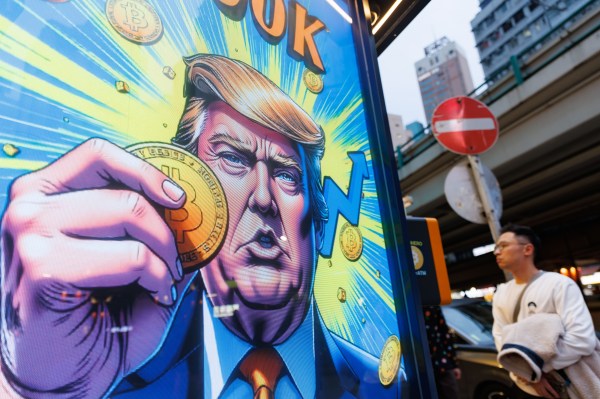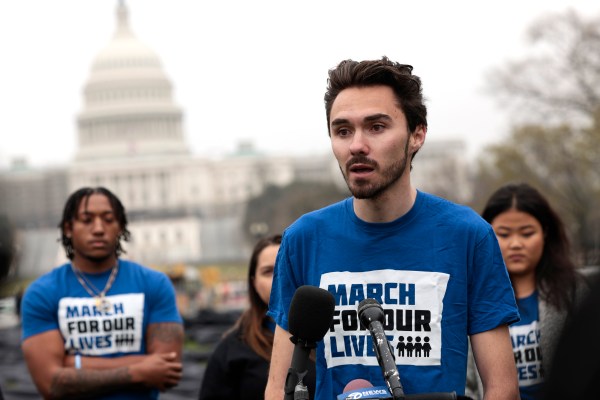With the New Hampshire primary less than three weeks away, no clear front-runner has emerged. Democratic party insiders, who confidently made predictions in years past, dare not project a winner. With polling sparse and inconsistent, well-connected Granite Staters are relying on their personal networks to get a sense of the race.
Gray Chynoweth, a Democratic business executive in Manchester who ran for Executive Council in 2018 and recently endorsed Pete Buttigieg, described the Democratic primary contest as “fluid.”
“The dominant theme for me is that it’s going to break so late because unlike Hillary and Obama and Bernie and Hillary, where one camp didn’t like the other, people have a number of choices,” he said.
In 2016, the Real Clear Politics polling averages showed Bernie Sanders up 13 points on Hillary Clinton, and Donald Trump up 17 points on John Kasich in the final week. In 2012, Mitt Romney was 20 points ahead of Rand Paul. In 2008, Barack Obama was eight points ahead of Hillary Clinton (though she famously surged in the last weekend to win).
In 2020, no candidate has been able to break into a sustained lead.
“I’ve been struck so far with how it’s been difficult for the new generation of Democrats—Harris, Booker, Castro, Bennet, Klobuchar—to get much oxygen,” University of New Hampshire political science professor Dante Scala said. “Biden has been so durable. The oxygen that Biden and Sanders took up has been interesting to me.”
Though durable, Sanders and Biden are not huge favorites and have shown themselves vulnerable to a late surge from a rival.
“There was a UNH/CNN/WMUR poll that had Bernie at 61 percent this time four years ago,” recalled Democratic National Committee member and former state party chairwoman Kathy Sullivan. “He ended up winning at 60 percent. He’s not even at 25 percent. He’s lost significant support. He’s not doing that well. He had almost two out of every three votes, and now he’s getting one out of four. Here’s a guy who should be taking prisoners, and his bubble has if not burst certainly has lost a lot of air.”
Biden would seem to be the obvious beneficiary of Sanders’ slide since 2016, but he has spent little time here, giving other candidates opportunities. He hasn’t visited New Hampshire yet in 2020. (Nor has Sanders.)
At a January 5 Pete Buttigieg town hall at Southern New Hampshire University, Biden’s absence and weaknesses were noted by attendees who were looking for an alternative to Sanders and Warren.
“All of the candidates with more experience are too far left,” said Tracy, 54, a Democrat from Newbury who didn’t want her last name published because, as an active Democrat, she intends to support the eventual nominee.
“He is experienced,” she said about Biden, “but I’m concerned about not just his chronological age but his ability to string sentences together. His policies line up probably more with mine, but I don’t think he’s the one to lead the country right now.” Undecided, she said she is leaning toward Buttigieg.
Various national commentators have called Biden or Sanders the frontrunner in New Hampshire, but the polling doesn’t support either claim.
Only four polls have measured the New Hampshire primary since Thanksgiving. Buttigieg led two by a single percentage point, Sanders topped one by two percentage points, and Joe Biden leads the latest poll by four points.
But all four leads, even Biden’s four-pointer, were within each poll’s margin of error.
Of 20 polls conducted since August, only five had the leader up by more than five points. Sanders was ahead in two of those polls, Elizabeth Warren in two, and Buttigieg in one.
No leader has had a margin of victory of more than five points since Buttigieg led by 10 in a St. Anselm College poll in mid-November. It had a margin of error of 6.1 percent.
Political insiders interviewed for this story were reluctant to name a front-runner, but instead consistently mentioned four candidates as more likely to win: Buttigieg, Sanders, Biden and Warren. But one—Warren—was singled out as having diminishing odds of finishing even in the top four.
“I think the more she gets into the details of her proposals, the more people doubt that they can happen,” longtime Democratic state Sen. Lou D’Allesandro of Manchester said. “And as a result of that, they lose confidence in what she’s saying.”
D’Allesandro has endorsed Biden.
There is buzz that Klobuchar is gaining momentum as Warren is fading.
“Something’s happening there,” Sullivan said of voter interest in Klobuchar.
After the interview, but before this article was published, Sullivan endorsed Warren. Warren, from neighboring Massachusetts, might have expected help from her two female U.S. Senate colleagues who represent New Hampshire, Jeanne Shaheen and Maggie Hassan. But they’ve remained neutral. The most liberal member of New Hampshire’s congressional delegation, Rep. Annie Kuster, was regarded as more likely to go with Warren, but she endorsed Buttigieg on Wednesday. Freshman U.S. Rep. Chris Pappas, a well-liked, openly gay restaurateur, has made no endorsement.
Some of the more liberal state legislators have pointedly not endorsed Warren. Sen. Martha Fuller-Clark, from Portsmouth, surprised many by endorsing Biden. In an interview with the New Hampshire Journal, the very liberal senator predicted a rough road ahead for her fellow progressive.
“New Hampshire is going to be tough for Warren, not because voters here don’t respect her and her values,” she said. “It’s because she’s been overly ambitious. It has nothing to do with being a woman or the fact that she’s a progressive. It’s just a recognition that if we’re going to pull this country together, we’re going to have to be more [ideologically] inclusive.”
The fear that President Trump could remain in office if Democratic primary voters choose poorly appears to be weighing on the minds of many, said Wayne Lesperance, a political science professor and vice president of academic affairs at New England College.
“The context feels different. The way people talk about the stakes feels different. For a lot of people involved, they talk about it like it’s an existential crisis. The tone of the whole thing feels different. They would lay that all at the feet of the president. For Democrats, they talk not like they’re running against somebody they disagree with. They talk like they’re running against somebody who’s a threat to the country.”
Chynoweth said he’s heard the same concern among Democrats in the state.
“I don’t hear people talking about wanting a woman or a person of color in the White House the way I did when Obama was running,” he said. “That was a powerful theme. But here the theme is: Beat Trump.
“It’s not that they really like someone but aren’t sure if that person could beat Trump. It’s that they aren’t sure who would be the best to beat Trump.”
It’s all adding up to a late-breaking primary, insiders say.
“There are a lot more undecideds at this point in New Hampshire,” Sullivan said.
Few people still active in Democratic Party politics have been involved as long as D’Allesandro, the Manchester senator. He completed three terms on New Hampshire’s Executive Council in 1981—the year before Buttigieg was born. A former teacher, he can name political activists, staffers, and elected officials who were students of his—or whose parents were. He still walks the neighborhood and talks to people to learn what their interests and concerns are. He said most Democratic primary voters have yet to make up their minds and won’t for weeks.
“I think it’ll be a last-minute decision.”
Andrew Cline is president of the Josiah Bartlett Center for Public Policy, New Hampshire’s free-market think tank. He was formerly the editorial page editor of the New Hampshire Union Leader.
Photograph of Elizabeth Warren at a New Hampshire rally by Sarah Rice/Getty Images.






Please note that we at The Dispatch hold ourselves, our work, and our commenters to a higher standard than other places on the internet. We welcome comments that foster genuine debate or discussion—including comments critical of us or our work—but responses that include ad hominem attacks on fellow Dispatch members or are intended to stoke fear and anger may be moderated.
With your membership, you only have the ability to comment on The Morning Dispatch articles. Consider upgrading to join the conversation everywhere.